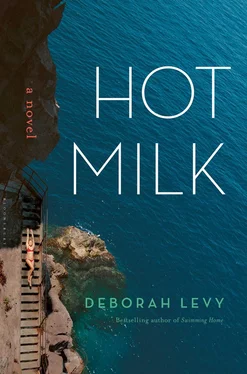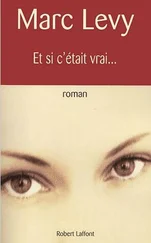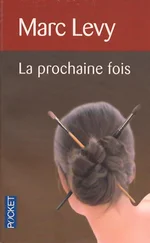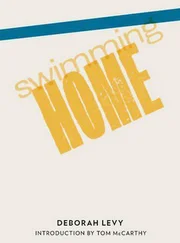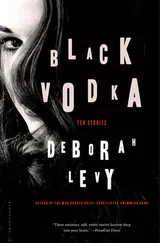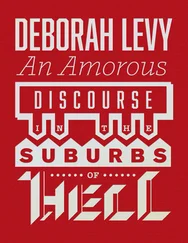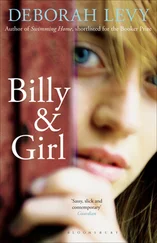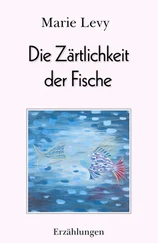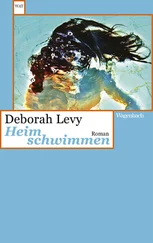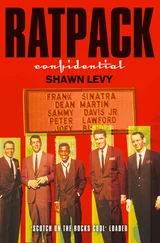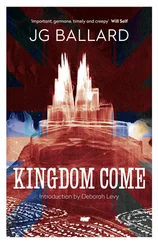‘Of course.’
I walked into the living room, gently took the plate from her lying, cheating hand (but not as attacking as her lips) and poured more milk into the mixture. This time, I added honey. ‘Let me take you out for a drive, at least,’ I said.
To my surprise, she agreed. ‘Where shall we go?’
‘We’ll take the route towards Rodalquilar.’
‘Very good. I haven’t been out all day.’ She was ravenous after her walk and spooned the banana mixture through her thin lips with new appetite.
It was a long haul to push her wheelchair to the car. It was Saturday night and the village was crowded with families and their children. I suppose she and I are a family. All the heavy lifting felt like nothing to me. I could have lifted the chair above my head with my new monster fury. My mother had chosen to keep her daughter in her place, forever suspended between hope and despair.
When she was eventually seated in the Berlingo and I was puzzling over the gear called neutral, she told me she couldn’t be bothered to put on her seat belt.
‘I’ll take that as a vote of confidence.’
‘Are you expecting someone to turn up in Rodalquilar, Sofia?’
‘Not that I know of.’
I took the rough road to cut across the mountains before we joined the motorway. The night was warm. She opened her window to peer at the darkening sky. There were ruins with FOR SALE signs on rusty poles poked into the hard earth. Near the ruins, someone had made a garden. A tall, flowering cactus had toppled over from the weight of its fruit, an abundance of yellow prickly pears. The road was a hazard of holes and small rocks, spraying dust over the windscreen.
I was driving fast and blind by the time I turned left on to the new motorway.
‘Water, Sofia, I need water.’
I pulled into a service station and ran into the shop to buy a bottle of water for Rose. A pile of porn films lay on the counter with an assortment of key rings, a solitary bottle of rough country wine and a clay pig moneybox.
By the time we were on the road again the clock on the hire car was positioned at 8.05, the temperature at 25C, my speed 120kph. A decaying Ferris wheel stood abandoned in the desert like an open mouth, a last, cheap laugh.
I stopped the car on the hard shoulder. ‘Let’s have a look at the sunset,’ I said.
There was no sunset to look at but Rose did not seem to notice.
Out came the wheelchair and fifteen minutes of heavy lifting. Rose leaned on my arm and then on my shoulder as she lowered herself into it.
‘What are you waiting for, Sofia?’
‘I’m just getting my breath back.’
A white lorry was making its way towards us in the distance. It was loaded with tomatoes grown under plastic on the sweltering desert slave farms.
I wheeled my mother into the middle of the road and I left her there.
At night the marble dome of the Gómez Clinic resembled a spectral, solitary breast illuminated by the lights hidden in the surrounding succulents. A maternal lighthouse perched on the mountain, its veined, milky marble thrusting out of the purple sea lavender. A nocturnal breast, serene but sinister under the bright night stars. If it was a lighthouse, what did it signal to me, panicking in the desert, all my body shaking? A lighthouse is supposed to help us navigate away from hazards, to steer us into safe harbours. And yet it had seemed to me that for much of my life it had been my mother who was the hazard.
The glass doors of the dome opened soundlessly as I stepped into this marble tomb, not understanding why I was here or what I hoped to find. A young male doctor leaned against a pillar with his back to me while he prodded his phone. The lighting was dim like twilight. I made my way to Gómez’s consulting room with no idea if he would be there or what to do if he was, but there was no other place for me to go. I knocked on the oak-panelled door. The noise of my knuckles on the wood made a deep, resonant sound, in contrast to the marble, on which anything that was dropped would shatter. There was no answer so I pushed the heavy door with my shoulder and it opened. It was dark in the room. The computer was switched off, the blinds were down and Gómez’s chair was empty. Yet I could sense someone was there. The room smelt odd, like liver or blood, a dark, visceral smell. I looked down at the floor. Gómez was lying on his stomach in the far corner of the room, peering into a cardboard box. I could see the soles of his shoes and his spectacles, which were perched on top of his silver hair. He turned his head to see who was there and looked startled to see it was me. He put his finger to his lips and beckoned me to walk further into the room. I tiptoed towards the box and knelt down next to him. Jodo had birthed her kittens. Three tiny, wet, wrinkled creatures were suckling their mother. She lay outstretched on her side, now and again licking dried blood off their fur.
Gómez moved closer to my ear. ‘You see how their eyes are closed? They can smell her, though they cannot yet see her. Each has his favorite teat. The strongest, this white one here, is kneading his paws against his mama to stimulate the flow of her milk.’
Jodo looked anxiously at Gómez as he lightly stroked the fur between her ears with his finger.
‘She’s licking this one here to keep him warm. See how he is the weakest of the litter? When she licks the weakling she puts her scent on him.’
I told him I had to speak to him urgently. Right now.
He shook his head. ‘This is not the right time. You have to have an appointment, Sofia. And you are talking too loudly and scaring my animals.’
I started to sob. ‘I think I have killed my mother.’
He had been stroking Jodo. Now, his finger paused. ‘And how have you done that?’
‘I left her in the road. She can’t walk.’
His finger resumed stroking the white fur.
‘How do you know she can’t walk?’
‘She can. But she can’t.’
‘What does that mean?’
‘She can’t walk fast.’
‘How do you know she can’t walk fast? She is not old.’
‘Not fast enough.’
‘But she can walk?’
‘I don’t know. I don’t know.’
‘If you left her in the road, then you know she can walk.’
We were whispering over the kittens, which were suckling and pummelling, licking and pushing.
‘Your mother will stand up and walk to the side of the road.’
‘What if the lorry doesn’t stop?’
‘What lorry?’
‘There was a lorry in the distance.’
‘In the distance?’
‘Yes. It was getting closer.’
‘But it was in the distance?’
‘Yes.’
‘Then she will walk away from the lorry.’
My tears dripped over the kittens.
Gómez moved me away from the box.
I sat on the floor with my arms around my knees. ‘What is wrong with my mother?’
‘You are disturbing Jodo.’
He helped me to my feet and walked me briskly out of his consulting room. ‘I have refunded your fee. Now I must get on with watering my garden and attending to my animals.’ He looked at his watch. ‘But my question is this. What is wrong with you?’
‘I don’t know if my mother is dead or alive.’
‘Yes. That is what all the children of mournful mothers fear. They ask themselves this question every day. Why is she dead when she is alive? You have left your mother in the middle of the road. Perhaps she will accept your challenge to save her own life. It is her life. They are her legs. If she wants to live, she will walk out of danger. But you will have to accept her decision.’
It had never occurred to me that she might not want to live.
‘Your confusion is wilful,’ he said. ‘You are finding a home in ignorance. I told you I was no longer interested in the walking problem. Pay attention, please.’
Читать дальше
